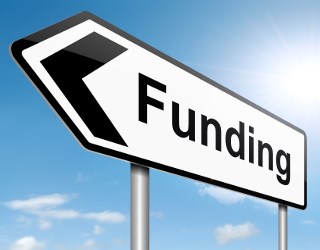 Marketing. Media & PR, Education & Training, Pharmaceutical & Medical, Consumer Goods & Services
Consultancy to Conduct Assessment of availability, accessibility and use of contraceptives in selected districts in Botswana
Marketing. Media & PR, Education & Training, Pharmaceutical & Medical, Consumer Goods & Services
Consultancy to Conduct Assessment of availability, accessibility and use of contraceptives in selected districts in Botswana
Consultancy to Conduct Assessment of availability, accessibility and use of contraceptives in selected districts in Botswana
Consultancy to Conduct Assessment of availability, accessibility and use of contraceptives in selected districts in Botswana has been closed on 31 May 2017. It no longer accepts any bids. For further information, you can contact the United Nations Population Fund
Bellow, you can find more information about this project:
Location: Botswana
General information
United Nations Population Fund
Marketing. Media & PR
Education & Training
Pharmaceutical & Medical
Consumer Goods & Services
Closed
Timeline
17 May 2017
31 May 2017
Not available
Contacts
Description
- Introduction
Adolescent health issues are increasingly being seen as critical areas of action at global, national and community levels. The 1994 International Conference on Population and Development, Cairo; the 1995 Fourth World Conference on Women in Beijing; the 1995 World Summit for Social Development in Copenhagen; and the Global Strategy for Women, Children and Adolescents among others highlighted issues concerning young people. Declarations from these conferences are interrelated and underline the need to address the glaring gap in adolescent health, SRH and rights of young people through focused multi-sectoral approaches. While the majority of young people remain healthy and become productive adults, a large number face different health and development challenges. Many of their decisions, behaviors and relationships impact on their future health and development. This has major implications for individual, as well as public health. Therefore, one of the most important commitments a country can make towards its development is to address issues and concerns of its young people
Adolescent and young people make the largest cohort of Botswana’s population, however a large percent of them lack access to sexual and reproductive health (SRH) services and information they need to protect themselves from contracting HIV infection and other STIs and preventing unwanted pregnancies. Over 60% of the population is aged below 30 years and 33.5% between 10 and 24. This group is facing a wide range of SRH problems. Growing up in a country with one of the highest HIV prevalence, adolescents and young people are navigating their often turbulent lives with little or no information to make informed decisions about their sexual and reproductive lives.
Studies show that adolescents in Botswana are experiencing sex at an earlier age than before; while the average age at first is 17 years both males and female, 33% report having started having sex before turning 13 years. For many (22.2%) first sex is forced. Young women are almost twice (11.1%) as likely to be HIV infected as compared to their male counterparts (4.8%). However, only less than 50% of them have comprehensive knowledge about HIV transmission. Sexually Transmitted infections (STIs) among young people are high (20.6%) with the most common being gonorrhoea, chlamydia, trichomonas, and syphilis. Teenage pregnancy was estimated at 9.7%. Unwanted pregnancies are still high; the 2011 ANC Sentinel Survey revealed that 50.2% of pregnant women had an unplanned pregnancy with the mean age of delivery as 17 years. Consistent use of condoms is at 65.2% among this group and declines in condom use across the general population have also been observed for both sexes and across all age groups. In order to reverse these negative SRH indicators among young people there is need to strengthen policies and programmes.
Indicators on mental health, use of alcohol and substance, violence and injuries are negative among adolescents. A recent study conducted among school going adolescents revealed that 18% had ever smoked cigarettes, 36% had ever alcohol and 8.2% had used marijuana before. Violence is high among adolescents with 20% reporting to have ever been threatened or injured with a weapon. Fifteen percent of the students have been involved in a physical fight and had to be treated by a doctor or nurse in the past 12 months while 24% have been bullied. A disturbingly high number of students have thought about committing suicide (22.4%), planned to commit suicide (22.3%) and attempted to commit suicide (19.4%) before.
2. Rationale
Botswana has cultivated a seemingly favourable policy environment to safeguard the SRH lives of adolescents and young people. The National Development Plan 11 and Vision 2036 have prioritized investing in adolescents and young people to harness the demographic dividend. Other policies include, Revised National Youth Policy and Action Plan National Strategic Framework on HIV II, National Health Policy.
In recognition of the unique challenges and needs of adolescents and young people, the government developed the first Adolescent Sexual and Reproductive Health Implementation Strategy in 2003 and revised it in 2011 following an evaluation of the implementation of the strategy. The revised strategy (2012-2016) was intended to guide the implementation of ASRH programmes and services for the young people in Botswana. It outlined key areas of concern and gaps that the strategy could respond to that included; review of contradictory policies and laws that limit access to essential services; intensify IEC , strengthen coordination of the youth programmes; establish youth friendly services and diversify places for provision of adolescent friendly SRH information and services; training of health care workers, parents, teachers, religious leaders and community leaders; intensify counselling, peer education parent-child communication and provision of Comprehensive Sexuality Education; strengthening life skills and livelihood; support M&E for ASRH programmes.
While implementation of second ASRH strategy has been undertaken for 5 years, the expected impact has not been realized owing to a number of challenges; a) significant numbers of adolescents are not adequately reached by the interventions intended for them; b) interventions that have been shown to be ineffective continue to be implemented; c) interventions that have shown to be effective are delivered ineffectively and d) interventions are delivered with inadequate dosage (low intensity & short duration) resulting in limited or transient results.
The period for the ASRH strategy lapsed at the end of 2016 hence requires updating to align with current global developments. The review comes at an opportune time to align the strategy with the Sustainable Development Goals (SDGs) that have set ambitious targets to be met by 2030. The success of the SDGs will be marked by how the potentials of the adolescents and young people are realised by the end of 2030 hence the alignment of the strategy will put Botswana in a position to push towards attaining the SDGs. In addition the review gives the opportunity to strengthen focus and alignment to the ICPD agenda.
This current review further provides an opportunity to expand the scope of the strategy from focusing only on ASRH and focus broadly on adolescent health. This is done in cognisance that a number of health-related behaviours and conditions begin in adolescence that affect health both at the time and in later years. Some of these behaviours lead to the major causes of mortality and morbidity among adolescents, such as suicide attempts, injuries and the various risks associated with unprotected sexual behaviour, or to conditions such as underweight and other nutrition deficiencies. Other behaviours begun in adolescence contribute to adult non-communicable diseases, including conditions related to tobacco or alcohol use and overweight or obesity.
According to the Global Strategy for Women’s, Children’s and Adolescents Health (2016-2020), adolescents die or become sick from preventable causes. Too few have access to information and counselling and to integrated youth friendly services and especially to sexual and reproductive health services without facing discrimination or other obstacles. Many continue to suffer from effects of alcohol and tobacco, injuries and poor nutrition among others. Health outcomes among adolescents and young people are worse when people are marginalized, discriminated or live in underserved communities therefore the strategy will prioritize these communities.
Vulnerabilities of adolescent girls are varied ranging from acquiring HIV, predisposed to sexual violence, limited ability to access SRH services including contraceptives.
Adolescents and young people’s health is recognized as a fundamental human right hence the strategy will take a human rights based approach, and will be gender responsive, equity driven, evidence informed and people centred.
It is against this background that Ministry of Health and Wellness is seeking a qualified international and local consultants to develop a comprehensive Adolescents and Youth Health Strategy.
Overall objective
To develop a comprehensive Adolescent and Youth Health Strategy in line with current global evidence and guidance. The strategy will focus on high impact and value for money interventions to address health concerns for adolescent health.
This will enable streamlining and integration of efforts for the development and implementation of programmes and health services aimed at protecting the health, well-being and development of adolescents in the country.
The updated national adolescent and youth health strategy will serve as a reference tool to guide government, NGOs, the private sector, communities, collaborating agencies and different institutions on priorities for support, and guide partners to strengthen monitoring and evaluation of interventions to ensure the delivery of a service package that is responsive to the health needs of adolescents in the country.
3. Expected deliverables
The deliverables for the consultancy will be;
- Inception report
- Adolescent and Youth Health Strategy (2012-2016) Gap report
- Final, validated A&Y Health Strategy, Operational Plan, including the recommended process, components, approaches and innovations to consider in adolescent and youth health programming and M&E Framework with key indicators, baselines and targets for youth health programming and reporting guidelines.
4 .Proposed methodology
To ensure the successful review of the document, the process will follow all steps in a standard strategy review and development process. The entire review process will be guided by a gender and rights-based approach and will employ participatory methodologies to ensure that all key stakeholders have the opportunity to contribute to the review of the strategy.
The following methods will be employed at the various stages of the review:
- Nomination of a core advisory group to be appointed by MoHw
- Development and presentation of inception report, including guiding questions for literature review and stakeholder consultations to inform the development of the gap report and revised strategy
- Desk review of existing literature, policies, strategies, M&E frameworks and evaluations
- Prepare and facilitate first stakeholder consultation to review the existing ASRH strategy and identify gaps
- Development of draft gap report
- Development of draft strategy, operational plan and M&E framework
- Presentation of draft strategy to the core advisory group and comments and feedback
- Prepare and facilitate second stakeholder consultation to review and validate the draft Adolescent & Youth Health strategy, operational plan and M&E framework
- Finalization of Adolescent & Youth Health strategy, , operational plan and M&E framework
- Strategy endorsement and dissemination
5. Duration and timelines
Proposed timelines – 60* working days
TASK TIME FRAME (days)
Inception report 3 days
Gap Analysis of Implementation of ASRH Strategy (2010-2016)
Desk review 1 week (Home based)
Data collection 2 weeks (in country)
Stakeholder consultations 1 week
Report writing 1 week (Home based)
Developing of Adolescent & Youth Health Strategy Report
Stakeholders consultations 1 week
Developing of A&Y Health Strategy Report
(Submit draft strategy last day of the 2 weeks) 3 weeks
Revised final draft based on key stakeholder feedback 1 week (Home based)
Stakeholders Meeting - Strategy Presentation 1 day
Revise strategy report 2 days (Home based)
Submit all deliverables
Total duration: 7 weeks & 6 days
*Note 60 working days are to allow for feedback between consultant and Ministry of Health &
Wellness
6. Governance/management of consultancy
The consultant reports to the Director of Public Health, Ministry of Health & Wellness and UNFPA ASRH Specialist
7. Qualifications and experience
The incumbent should hold at a minimum;
- International lead consultant
- Post graduate degree in Public Health, Social Sciences or equivalent
- 15 years’ experience in adolescent health, experience in adolescent and sexual and reproductive health is an added advantage
- Experience in developing adolescent and youth health policies, strategies in developing countries
- Experience in developing M&E plans in developing countries.
- Experience in working with government officials, donors, youth and civil society and being able to interact with a variety of stakeholders at different levels;
- Strong analytic, writing and communication skills
- Fluency in English
Detailed TORs can be obtained online at botswana.unfpa.org
Submissions should be made to the following address with the title of the consultancy clearly labelled on the outside of the envelope no later than 31 May 2017;
Assistant Representative
United Nations Population Fund
United Nations Building
Corner Khama Crescent and President's Drive
P O Box 54
Gaborone, Botswana
Email submissions can be made to [email protected]
For inquiries, please call 00267 3633754
Receive Daily Tenders and Grants notifications
Subscribe nowFeatured tenders
-
 Tender
12 Oct 2021
Botswana
Provision of services and support related to cleantech innovation business acceleration to early stage start-up companies/teams in B otswana, Cuba, Ethiopia, Kenya and Peru.
United Nations Capital Development Fund
Tender
12 Oct 2021
Botswana
Provision of services and support related to cleantech innovation business acceleration to early stage start-up companies/teams in B otswana, Cuba, Ethiopia, Kenya and Peru.
United Nations Capital Development Fund
-
, Asia Pacific Economic Cooperation, African Union, Central Bank of West African States - (APEC)05 copy.jpg) Tender
04 Aug 2021
Botswana
Supply and delivery of Promotional Material
United Nations Capital Development Fund
Tender
04 Aug 2021
Botswana
Supply and delivery of Promotional Material
United Nations Capital Development Fund
-
 Tender
06 Nov 2017
Costa Rica
Behavioural Economics for Fundraising Consultancy Services
United Nations Children's Fund
Tender
06 Nov 2017
Costa Rica
Behavioural Economics for Fundraising Consultancy Services
United Nations Children's Fund
-
 Tender
21 Sep 2017
Botswana
2 lots of UHPLC & hybrid MS/MS systems for Senegal and Botsuana
International Atomic Energy Agency
Tender
21 Sep 2017
Botswana
2 lots of UHPLC & hybrid MS/MS systems for Senegal and Botsuana
International Atomic Energy Agency
-
 Tender
05 May 2017
Costa Rica
Prolongation de délai: Pour le Recrutement d’un Prestataire Pour l’Appui à la Mise en Œuvre d’une Campagne Médiatique Régionale pour le Changement Social et Comportemental de l’Initiative SWEDD
United Nations Population Fund
Tender
05 May 2017
Costa Rica
Prolongation de délai: Pour le Recrutement d’un Prestataire Pour l’Appui à la Mise en Œuvre d’une Campagne Médiatique Régionale pour le Changement Social et Comportemental de l’Initiative SWEDD
United Nations Population Fund
Get free access to our Tenders & Grants Database
Our service is free of charge and will always be
Join NowDonors
-
 Asian Development Bank
Asian Development Bank
-
 Agence Française de Développement (French Development Agency)
Agence Française de Développement (French Development Agency)
-
 CENTRAL BANK OF WEST AFRICAN STATES
CENTRAL BANK OF WEST AFRICAN STATES
-
 DEUTSCHE GESELLSCHAFT FUR INTERNATIONALE ZUSAMMENARBEIT
DEUTSCHE GESELLSCHAFT FUR INTERNATIONALE ZUSAMMENARBEIT
-
 INTER AMERICAN DEVELOPMENT BANK
INTER AMERICAN DEVELOPMENT BANK
-
 NON-GOVERNMENTAL ORGANIZATION
NON-GOVERNMENTAL ORGANIZATION
-
 NORDIC INVESTMENT BANK
NORDIC INVESTMENT BANK
-
 ORGANIZATION OF AMERICAN STATES
ORGANIZATION OF AMERICAN STATES
-
 SWISS DEVELOPMENT COOPERATION
SWISS DEVELOPMENT COOPERATION
-
 UNION ECONOMIQUE ET MONETAIRE OUEST AFRICAINE
UNION ECONOMIQUE ET MONETAIRE OUEST AFRICAINE